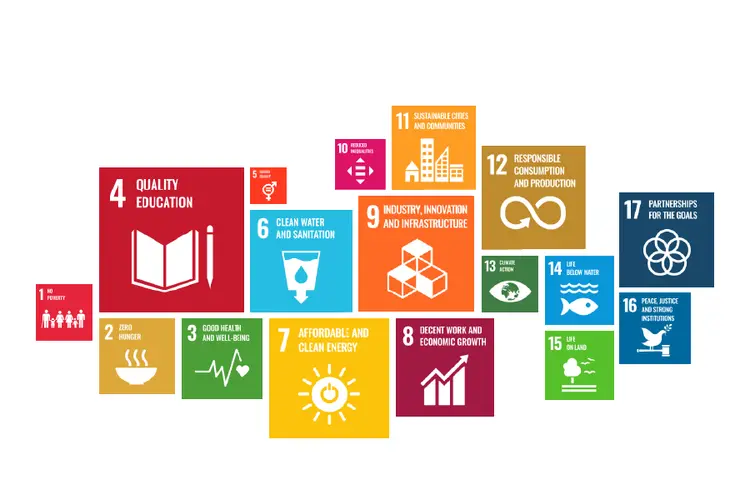Mendelson Testifies on SDGs Before House Committee
Media Inquiries
Ambassador Sarah E. Mendelson(opens in new window), distinguished service professor of public policy, head of Carnegie Mellon University’s Heinz College in Washington, D.C., and co-chair of CMU’s Sustainability Initiative, testified before the House Foreign Affairs Subcommittee on International Development, International Organizations and Global Corporate Social Impact on Sept. 15, 2022. Mendelson was invited to speak on the Sustainable Development Goals(opens in new window) (SDGs) and how they relate to recovery from the COVID-19 pandemic.
The 17 SDGs were adopted in 2015 by all United Nations member states. They recognize that ending poverty and other deprivations must go hand in hand with strategies that improve health and education, reduce inequality and spur economic growth — all while tackling climate change and working to preserve the environment.
Mendelson testified issues that may be considered siloed, technocratic — such as health systems or transportation — can be seen in their complexity when looked at through the lens of the SDGs. They have many dimensions affecting communities unevenly.
"(The SDGs) help refresh how we approach human rights with a greater focus on socioeconomic rights. The framework rests on the fact that development happens everywhere," Mendelson said.
What Mendelson dubs as "the four Cs" — COVID-19, climate, conflict and corruption — all make the SDGs more relevant as an organizing and operational framework. "Internationally, numerous reports suggest COVID and conflict, namely Russia’s war in Ukraine, have dramatically rolled back gains on life expectancy, poverty and food security. The world is in a more precarious place than when (the SDGs) were adopted," she said.
"The SDGs can create a plan of action for the world to recover in a just way from the knock-on effects of COVID. So far, though, we’re falling behind. The stakes are high, the moment is right now, to call for elevated U.S. leadership on the SDGs as a blueprint for recovery." — Ambassador Sarah E. Mendelson
Mendelson expressed concern that while the Biden-Harris administration is not hostile to the agenda of the SDGs, the consensus among experts is that it is not playing the role of champion. However, there are some policies that align with the SDGs, one example is the executive order establishing the Equitable Data Working Group.
"The portrait of a country that emerges from aggregated data masks inequities. Disaggregated data, for example by race, gender and ethnicity, tell a very different story. We don’t have to look far to see this contrast," Mendelson said. "Here in D.C., pre-pandemic life expectancy of African American males was below that of countries the World Bank labels as 'developing.' If the ethos behind the SDGs is 'leave no one behind,' then disaggregated data is fundamental to the quest."
Mendelson shared three key policy recommendations for strengthening Congress’ and the administration’s commitment to the SDGs:
- Issue a Voluntary National Review (VNR) — Congress should require the executive branch to report on SDG progress in 2023 and periodically through 2030. To do this, the administration should appoint senior leaders that have responsibility for advancing the SDGs across federal agencies to help coordinate collective action on the goals.
- Establish an interagency process to advance the agenda. Congress should help ensure that this process is launched. The SDGs pertain to the U.S. domestic context as well as U.S. diplomatic and global development agendas.
- Invest in building a world — including in the United States — that experiences a just recovery from COVID-19. When sensible efforts to invest in recovery from COVID-19 come before Congress, fund them and require that they align with the SDGs.
"The SDGs can create a plan of action for the world to recover in a just way from the knock-on effects of COVID. So far, though, we’re falling behind. The stakes are high, the moment is right now, to call for elevated U.S. leadership on the SDGs as a blueprint for recovery," Mendelson said.
In September 2020, Carnegie Mellon University released the first-of-its-kind report for an institution of higher education, the Voluntary University Review (VUR), that examined how its education, research and practices aligned with the Sustainable Development Goals (SDGs). The VUR is a part of CMU's Sustainability Initiative(opens in new window) launched by Provost James H. Garrett Jr. to support CMU’s long-standing commitment to sustainability.
— Related Content —

A Partnership for the Goals

